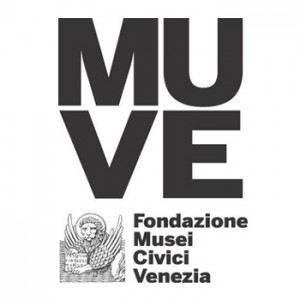We’re left speechless by Luigi Brugnaro’s drastic decision to close the city’s museum system, classifying it as a service that functions exclusively for tourism. With our initiative here we invite the Mayor to revisit his decisions and to promote an open discussion.
By Ytali
2 January 2021
The City Museums of Venice will remain closed until the beginning of April 2021. The decision is Mayor Luigi Brugnaro’s, who serves as the Vice-president of the Fondazione Musei Civici (FMVC) and, in the administration he leads, has the delegation for culture. There are over 500 workers employed in the activities of the City Museums. These workers are for the most part outsourced, already in precarious conditions, with scarce and fragile protections for their rights.
Ytali proposes to its readers to sign the appeal which we publish here below, in defense of the cultural life of the city and of its cultural institutions; they are being severely affected by the crisis underway, and not being protected by those who have the institutional and political responsibility to do so. It is an appeal for solidarity with the workers in a sector that is vital to the social and economic fabric of the city.
Those who wish to sign on can simply send their first and last name in an email, addressed to redazione@ytali.com.
******

Just when the good news about MoSE (acque alte and port activity) seemed to open an new season for Venice, a very serious blow to the city came with the news that the City Museums, by decision of the Mayor, will be closed, completely closed, for the next three to four months, while Italian museums will open after 15 January.
The decision is doubly surprising because almost 8 million Euro have just arrived from the government to the Fondazione as a substantial replacement for the lost ticket sales in 2020. Therefore we find ourselves in a paradoxical situation where the budget of the Fondazione has not experienced serious problems, while the employees – mostly on unemployment – have an uncertain future ahead of them, with heavy reductions to their already thin salaries.
The serious defects in the structure of the Fondazione Musei really stand out in a situation where an immense public heritage risks being managed like a private enterprise, with the same criteria as any business.
Furthermore, the act of force carried out by the Mayor runs afoul of the fundamental principal contained in the Convention signed in 2008 between the City of Venice and the Fondazione Musei Civici di Venezia. It is exactly here where it says (in Article 7) that the undersigned Convention governed the relations between the two signatories “as far as regards the methods of management, use and valorization of the Venice City Museums”. Here ‘valorization’ is intended as “any activity directed at bettering the conditions of knowledge and conservation of cultural heritage and increasing its use”. These principles and words are erased by the “lockout” called for by the City of Venice, which in all evidence is headed in the opposite direction from bettering the conditions of knowledge of the historic, artistic, and cultural heritage of Venice.

The news of such a drastic choice, when the government is doing a great deal for the museums of Venice, and Europe expects significant choices from us, leaves us speechless, to see the museum system classified as a service whose function is solely for tourists; not taking into account that around the world the great museums play fundamental roles in the study, conservation and care of the materials entrusted to them.
Here it is not a question of political controversy, here the cultural future of the city is at stake, a city that – is it necessary to be reminded of this? – will have to invest a great deal in the coming months if it wants to embark on a different road than that already known, putting culture in the lead.
How many times in recent months have we heard it said that we finally would be able to abandon the tourism monoculture which has already caused so much damage? And now, would it not be appropriate to include the whole community of interested Venetians in designing our future? Perhaps the industrialists, merchants, and hoteliers are not concerned about the destiny of the museums? And the University, the libraries, the principal Venetian institutions, will they be called to the table of the future or no?
So, without controversy, the invitation to the Mayor is: please revisit your decisions, begin an open discussion, and consult those who think they have ideas about the issue of Museums. Exactly one hundred years ago Palazzo Reale was sold to the City to allow the 1922 opening of the great Museo Correr. The closure of all of its collection would be a strange way to celebrate this fundamental date for the history of Venetian collections.
We still have time to find alternative solutions: it will be crucial for us to unite our forces, lay out ideas, and advance proposals.
For Venice, we will find many.
For an up to date list of signatories see this article at: Ytali.com


Shame and disgrace, respect for the people of Venice.
LikeLike